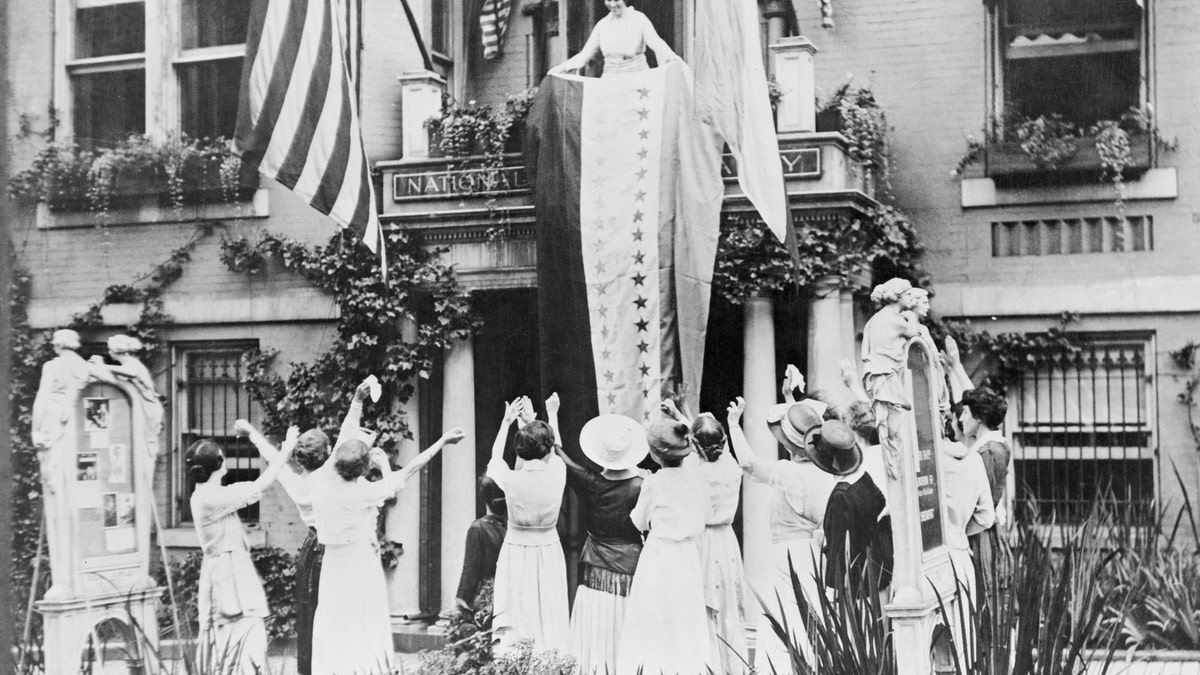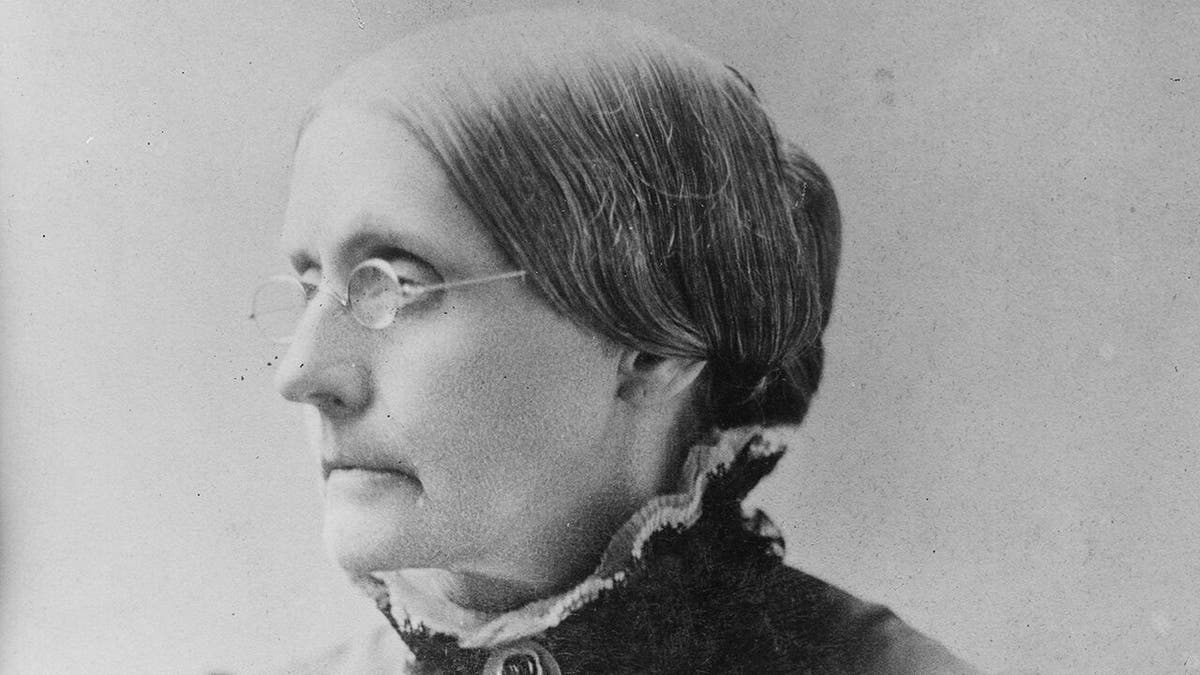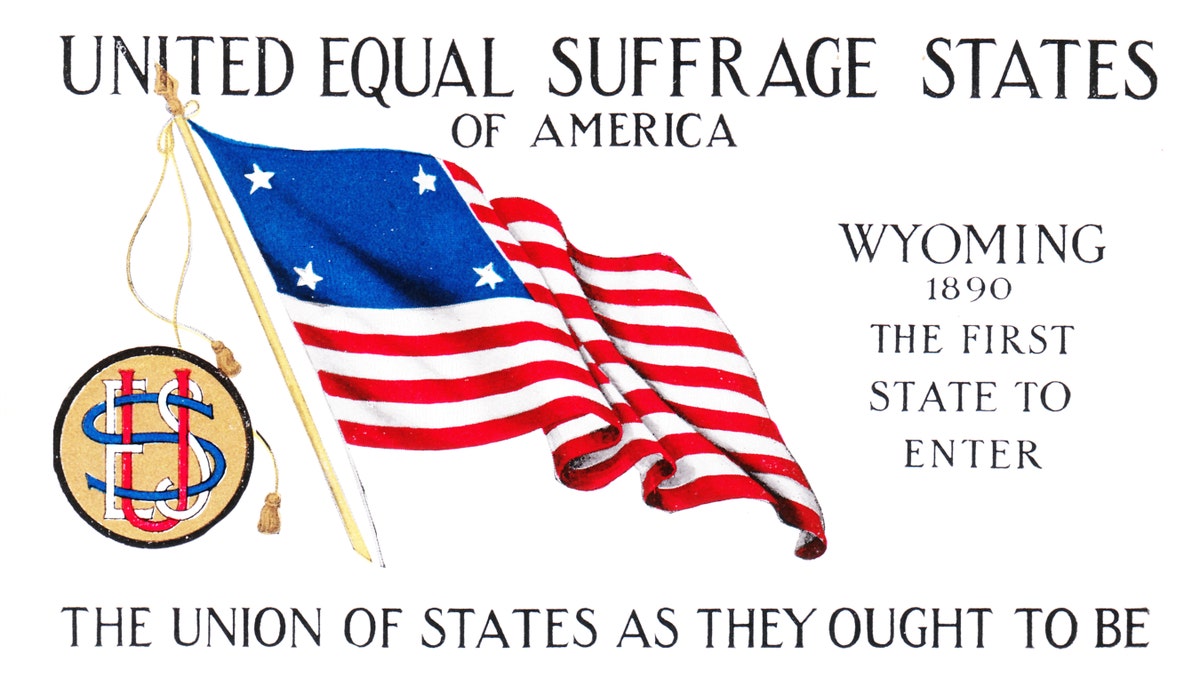Esteemed historian explains how women lobbied to pass the 19th Amendment
Brian Kilmeade sits down with Jane Hampton Cook to to learn about the Women's Suffrage Movement on Fox Nation's 'What Made America Great'
The 19th Amendment to the U.S. Constitution, which secured for women the right to vote, was ratified on this day in history, August 18, 1920.
It is considered one of the great landmarks in the fight for gender equality.
The amendment was often called the Susan B. Anthony Amendment, in reference to the renowned suffragist whose extraordinary efforts championed the right of women to be heard at the ballot box.
ON THIS DAY IN HISTORY, WYOMING TERRITORY FORMED, PROVED GLOBAL LEADER FOR WOMEN'S SUFFRAGE
"From the earliest history of our country, woman has shown equal devotion with man to the cause of freedom and has stood firmly by his side in its defense," Anthony wrote in her Declaration of Rights of the Women of the United States of July 4, 1876.
"Woman's wealth, thought and labor have cemented the stones of every monument man has raised to liberty."

Alice Paul unfurls a banner from the balcony of the National Women's Party headquarters, showing a star for each state that ratified the 19th Amendment, giving women the right to vote. The women celebrated Tennessee's ratification of the amendment in August 1920 — making the amendment law. (Bettmann/Getty Images)
Women in the U.S. first gained the right to vote in the Wyoming territory in 1869.
After another half-century of struggle, the nationwide effort to grant the right to all American women gained momentum with the midterm election of November 1918.
Republicans swept to victory to capture both houses of Congress that November.
The new Senate in June 1919 approved the amendment and sent it on to the states "after 41 years of debate," notes the chamber's official history.
"Woman has shown equal devotion with man to the cause of freedom and has stood firmly by his side in its defense."
The Senate had defeated the amendment numerous times over the previous four decades, most recently in October 1918. It then required approval by three quarters of the 48 states.
And in the summer of 1920, the chance to become the all-important 36th state fell upon the Tennessee assembly.
A young Tennessee legislator and suffrage opponent, Harry T. Burn, 24, reconsidered his position on the issue after receiving a warning from his determined mother.
MEET THE AMERICAN WHO WROTE ‘THE BATTLE HYMN OF THE REPUBLIC'
"The State Senate voted convincingly to ratify, but the House failed to do so twice, by two votes of 48 to 48," notes History.com.
"Just as a third vote was set to begin, Burn received a letter from his mother, Febb Ensminger Burn, that read, in part, 'Hurrah and vote for Suffrage and don't keep them in doubt … I've been watching to see how you stood but have not seen anything yet ... Don't forget to be a good boy.'"

Susan B. Anthony (1820-1906), renowned suffragist, championed the right of women to be heard at the ballot box.
Burn listened to his mom on the third vote. His "yea" broke the deadlock and determined ratification.
The passage of the 19th Amendment came just in time to grant millions of women the right to vote in the presidential election two months later.
Warren G. Harding, an Ohio Republican, easily defeated Democrat and fellow Buckeye James Cox and his running mate Franklin D. Roosevelt in the 1920 election, winning 37 of 48 states and more than 60% of the popular vote.
The 19th Amendment was passed amid a flurry of constitutional activity in the wake of World War I, much like that after the Civil War, when the Reconstruction Amendments (13th, 14th, 15th) were passed in the immediate aftermath of the conflict.

Suffrage postcard, with a four-starred American flag, celebrating Wyoming as the first of four states to grant women full voting rights, endorsed by the National Woman's Suffrage Association, published by the Cargill Company, Grand Rapids, Michigan, 1910. Photography by Emilia van Beugen. (Ken Florey Suffrage Collection/Gado/Getty Images)
But not all were successful.
The 18th Amendment, ratified just a year earlier than the 19th, prohibited the sale of alcohol in the United States.
For more Lifestyle articles, visit www.foxnews.com/lifestyle
The 20th Amendment in 1933 repealed it.
The 19th Amendment was also a part of a global effort among western nations to grant women's suffrage amid the turmoil of World War I.
CLICK HERE TO SIGN UP FOR OUR LIFESTYLE NEWSLETTER
Norway became the first nation to allow women to vote in 1913.
Doors began to open at the end of World War I as Great Britain (1918), Germany (1918) and the Netherlands (1919) all granted universal rights for women to vote.
France did not allow women to vote until 1944.
The 19th is among the shortest amendments, its brevity merely reinforcing its necessity.
CLICK HERE TO GET THE FOX NEWS APP
"The right of citizens of the United States to vote shall not be denied or abridged by the United States or by any State on account of sex," it states.
"Congress shall have power to enforce this article by appropriate legislation."









































